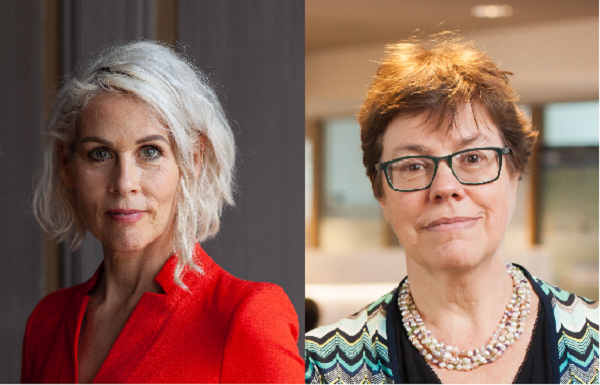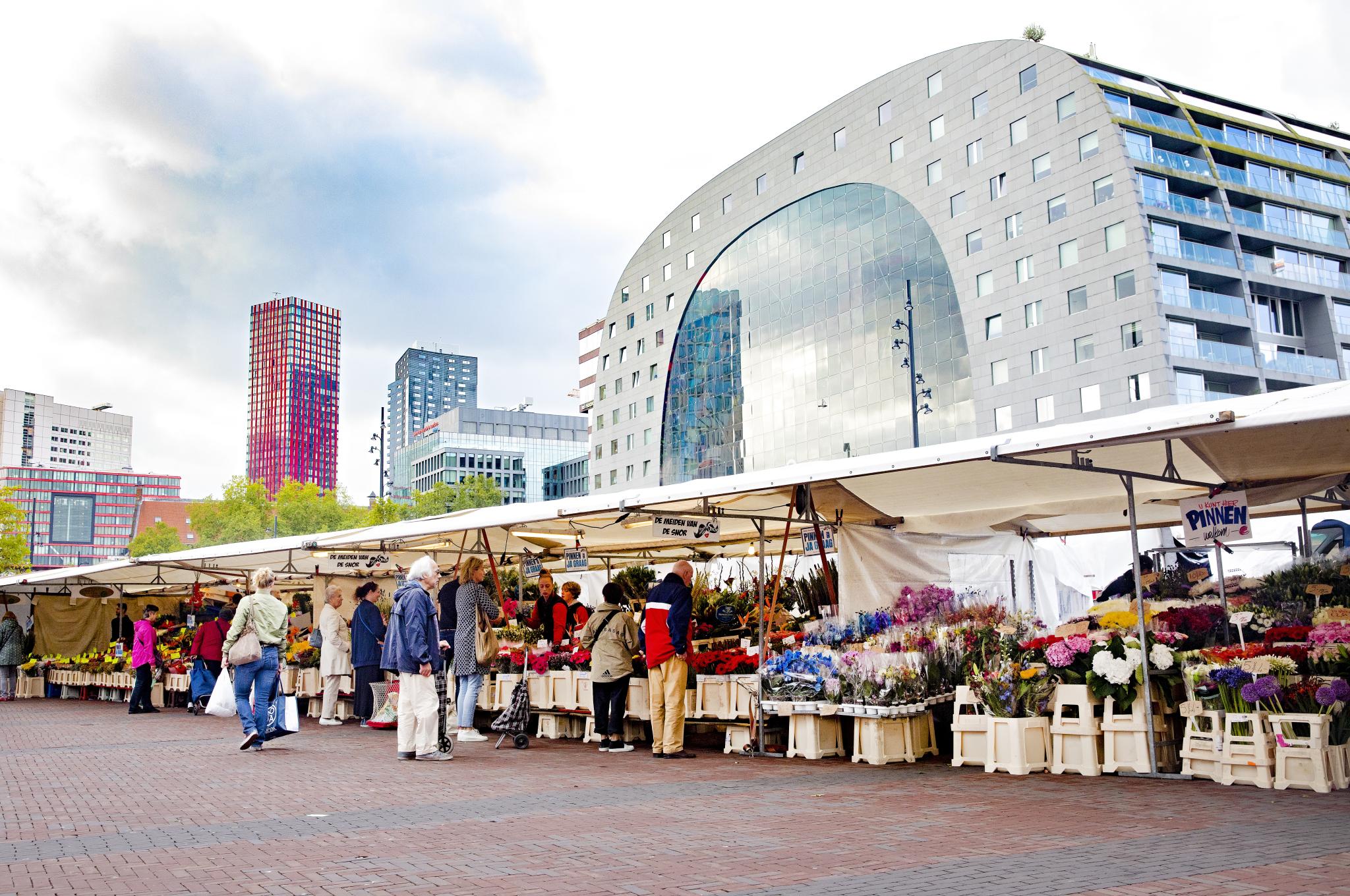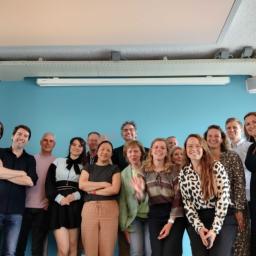
As society becomes ever-more complex, policymakers are quick to resort to technological solutions. However, society’s problems require a broad-based interdisciplinary approach, say professors Andrea Evers and Liesbet van Zoonen.
By Jeroen van Raalte
“Cities are becoming more and more complicated to manage,” says Liesbet van Zoonen, professor of Sociology at Erasmus University Rotterdam. “In their quest for solutions, policymakers often fall back on data.” Local authorities are increasingly turning to sensors, cameras, databases, and other technologies to run their cities more efficiently or make them more liveable, she notes. “There is a strong notion of social engineering.”
Van Zoonen is director of the Centre for BOLD Cities, a partnership of the universities of Leiden, Delft and Rotterdam (Leiden-Delft-Erasmus, LDE for short), which studies the emergence of the 'smart city' from different scientific perspectives. As well as technologists, there are also sociologists, public administration specialists, psychologists, and others who work at the institute. They explore the potential of technology in the city, but also hold it up to critical scrutiny. “We need to politicise the smart city,” argues van Zoonen. “It needs to become a live issue among residents, politicians, and civil society.”
In recent times, she has witnessed the advancement of artificial intelligence in town halls. “Technology companies and consultants are becoming fully committed to urban AI – that is, managing big cities using artificial intelligence. This could include features of public spaces, such as traffic lights, but also in the social domain, such as automating benefits.” Four years ago, the Rotterdam local authority was rapped over the knuckles for using a computer system called SyRI to detect potential benefit fraudsters. However, this has not deterred policymakers, says van Zoonen. “The pressure to base political decisions on data remains high.”
Reflex
That reflex is also recognised by Andrea Evers, professor of health psychology at Leiden University and Medical Delta professor of healthy society at TU Delft and Erasmus University. In healthcare, too, much hope is pinned on technological innovation. Staff shortages, the ageing population, and the increasing demand for care are all putting a huge strain on the sector. “There are high expectations that technology can make healthcare more efficient, although this is nowhere near always the case. It is often very much the question whether a new application meets the needs of patients or healthcare providers.”
Evers is leader of the LDE Medical Delta programme, a consortium of the three Zuid Holland universities, colleges, hospitals, government bodies, and other parties in the province that is investigating what factors contribute to a healthy society and how innovation can improve care, public health, and general well-being. “We should structure society to promote well-being and healthy living, but the opposite is the case. More than eighty percent of supermarket products are unhealthy. The range of available fast food is growing, even though we know it raises the risk of obesity.” An unhealthy lifestyle is not a stand-alone phenomenon, she says. “It is often linked to social problems, such as loneliness, poverty, and individualisation. Financial stress, for instance, can have a disastrous effect on a person's health. This can only be solved by viewing it as an all-encompassing problem.”
This is why LDE is investing in an interdisciplinary approach towards social issues. “On our programme, we not only look at an individual's lifestyle from a medical perspective, but also at psychosocial and environmental factors. How do you achieve greater social cohesion in a particular area, so that people are less lonely? And how do you get young children used to healthy eating? In that context, fellow researchers have set up a project with the Leiden local authority in which parents of newborn children are given vegetable bags. This ensures that babies are introduced to the taste of vegetables at an early age.”

Outside the university
The LDE universities aim not only to collaborate with each other, but also with parties outside the universities. “We wish to work not just on an interdisciplinary basis, but transdisciplinary too – that is, together with governments, businesses and citizens,” says Evers. “Science alone is not going to solve these complex problems. On our Medical Delta programme, for example, we work extensively with the Zuid Holland provincial government. This a win-win situation: policymakers are keen to have policies that are supported by science, while we get the chance to put our knowledge into practice.”
The Centre of BOLD Cities has the same philosophy. Its researchers work a great deal with local politicians, says director van Zoonen. “From the central government in The Hague, there is pressure on universities to focus a little less on international impact and to engage more with their own hinterland. We work closely with colleges, as they have been used to working with social partners for years. We can learn a lot from that.” However, Evers emphasises that this does not mean that publications in international journals matter less. “You can both apply research locally and publish about it internationally.”
As far as both professors are concerned, citizens are also collaboration partners, though this is easier said than done. Van Zoonen: “In larger cities in particular, the residents in certain areas are research-weary. They have been surveyed many times, but cannot see any evidence of it leading to improvement. Apart from which, no one likes being labelled 'disadvantaged' or a 'problem case'.
There are whole sections of the population that are not reached by scientists, says Evers. “They are under-represented in the figures. It would therefore be useful if researchers went into local neighbourhoods to help residents there take ownership of the problem. That would allow the best solutions to come to the fore.” She gives the example of a handbook created for developers of e-health (digital care) tools. “It explains how to factor in the knowledge, desires, and language skills of people from a lower socio-economic class when developing an app. To gain a greater knowledge, a researcher spent a period of time working in a community.”
Van Zoonen also sees a key role for citizens in the advent of the smart city. “At BOLD Cities, our core value is contestability: residents, politicians, and stakeholders groups should be able to contest technological applications in towns and cities at any time. Is an application really necessary? Who will benefit from it? And what do ordinary citizens think? We will continue to ask these questions in the years to come.”



